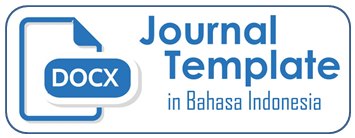COMPANY PROFITABILITY AND LIQUIDITY IMPACT ON TAX AGGRESSIVENESS: REACTIONS FROM MANUFACTURING COMPANIES IN NIGERIA
DOI:
https://doi.org/10.26486/jramb.v11i1.4395Abstract
The impact of company liquidity and profitability on tax aggression in Nigerian consumer products listed manufacturing companies was investigated in this study. Ex-post facto research methodology was applied. The twenty manufacturing companies that were quoted on the Nigerian Stock Exchange between 2012 and 2023 made up the population. Data sourced from annual financial reports of chosen listed manufacturing companies in Nigeria analysed using the panel data regression technique, correlation Matrix, Variance Inflation Factor and the Hausman Test. The analysis revealed that firm liquidity, profitability, firm leverage all have positive insignificant correlation with tax aggressiveness, and working capital is negatively insignificant. Finally, dividend payroll has positive significance on tax aggressiveness. Conclusively, firm liquidity, firm profitability, firm leverage and working capital pose non-significant effect on tax aggressiveness but dividend payroll has a significant correlation with tax aggressiveness in quoted manufacturing companies in Nigeria. It is therefore recommended that companies' tax policy should prioritize asset expansion to generate greater value for the organization in order to judiciously manage their tax aggressiveness. Also, manufacturing firms should adopt a thorough liquidity management plan that takes into account both long-term financial goals and short-term financial requirements to avoid falling into illegal tax aggressiveness.
References
Adegbite T.A. (2023). Do the Consequence of Taxation Impact Household Consumptions in Nigeria? Absolute Outcome from Autoregressive Distributed Lag (ARDL). South Asian Journal of Finance, 3(2), 112–130.
Adegbite T.A. (2024). Taxation Revenue and Government Investment in Electricity: An Analysis of Indispensable Interconnection with VECM. Journal of Accounting, Finance, Taxation and Auditing, Fakultas Hukum dan Bisnis Digital, Universitas Kristen Maranatha, 6(2), 84-101. https://journal.maranatha.edu/index.php/jafta/issue/view/308
Adegbite T.A. and Adegbayibi A. T. (2022). Tax Collection Strategies and Revenue Generation: Kwara State Verdict. International Journal of Innovative Research in Accounting and Sustainability, 7(1); 31-43
Adegbite T.A. and Azeez B. A. (2022). Company Income Tax Revenue And Economic Growth: Empirical Evidence from Sub-Sahara Countries in Africa The Journal of Economic Research & Business Administration, 139(1): 39-49
Adegbite T.A. and Inyanda S.J. (2024). Working Capital and Tax payable: Analysis of Interrelationship in Nigeria Manufacturing Companies. Economics and Organization 21(1), 25 – 45
Adegbite, T.A., and Ajagbe, S.T. (2023). Inventory Effectiveness and Nigeria Manufacturing Companies: Analysis with Return on Equity. Iranian Journal of Accounting, Auditing and Finance, 7(25), 1-12. doi: 10.22067/ijaaf.2023.43618.1291
Aladesonkanmi, A. J. (2020). Effect of Firm’s Characteristics on Tax Planning in the Nigerian Listed Deposit Money Banks (Doctoral dissertation, Kwara State University (Nigeria).
Athifah, L.N., & Mahpudin, E. (2021). The effect of liquidity, company size, and independent commissioner on tax aggressiveness. E-Jurnal Ekonomi Dan Bisnis Universitas Udayana, 10(2), 53 – 60.
Atu, O. G., Uniamikogbo, E., and Atu, O. O. K. (2018). Firm attribute and tax aggressiveness in the Nigerian banking sector. Journal of Taxation and Economic Development, 17(1), 161-178
Awodipe, T. (2018). Nigeria’s tax: GDP ratio remains one of the poorest in Africa. https://doi.org10.11089-05-2017/guardian.ng/business-services/nigerias-tax-gdp-ratio-remains-one-of-the-poore st-in-africa/
Balakkrishnan, K., Blouin, J.L. & Guay, W.R. (2019). Tax aggressiveness and corporate transparency. The Accounting Review, 94(1), 45-69.
Bashiru, M., Ba’ba, S., & Bukar, M. (2020). The impact of corporate governance attributes on tax planning of listed Nigerian conglomerate companies. International Journal of Academic Research in Business and Social Sciences, 10(5), 229 –238.
Chen, Y., Ge, R., Louis, H. & Zolotoy, L. (2019). Stock liquidity and corporate tax avoidance. Review of Accounting Studies, Springer, 24(1): 309-340.
Dewi, K. K. S., & Yasa, G. W. (2020). The effects of executive and company characteristics on tax aggressiveness of listed manufacturing companies on Indonesia Stock Exchange. Scientific Journal of accounting and Business, 15(2), 280-292.
Etter-Phoya, R., Lima, S. & Meinzer, M. (2019). Corporate income taxation in the digital age: Africa in the corporate tax haven index 2019. Tax Justice Network Publication, 1-37. https://doi.org/10.2139/ssrn.3483420
Ernawati, S., Chandrarin, G., Respati, H., & Asinien, J. (2021). The effect of profitability, leverage and company size on tax avoidance through earnings management practices in go public manufacturing companies in Indonesia. East African Scholars Journal of Economics, Business and Management, 4(7), 162-179
Fatimah, A. N, Nurlaela, S., & Siddi, P. (2021). The effect of company size, profitability, leverage, capital intensity and liquidity on tax avoidance in food and beverage companies listed on the stock exchange en 2015-2019. EKOMBIS REVIEW: Scientific Journal of Economics and Business, 9(1), 34-54.
Fernández-Rodríguez, E., García-Fernández, R., & Martínez-Arias, A. (2019). Influence of ownership structure on the determinants of effective tax rates of Spanish companies. Sustainability, 11(5), 1441.
FIRS Tax Statistics Report (2022). https://www.firs.gov.ng/taxstatistics-report/ (2022)
Hassan, I., Kim, I., Teng, H. and Wue, Q. (2016). The Effect of Foreign Institutional Ownership on Corporate Tax Avoidance, International Evidence. Bank of Finland Research Discussion Paper, 26 on 17 August, 2016
Hutchens, M., Rego, S.O. & Williams, B. (2019). Tax avoidance, uncertainty and firm risk. SSRN Electronic Journal, 1-46.
Irianto, B.S., Sudibyo, Y.A., & Abim, W.S. (2017). The influence of profitability, leverage, firm size and capital intensity towards tax avoidance. International Journal of Accounting and Taxation, 5(2), 33-41.
Jaffar, R., Derashid, C., & Taha, R. (2021). Determinants of tax aggressiveness: Empirical evidence from Malaysia. The Journal of Asian Finance, Economics and Business, 8(5), 179-188.
Jensen, M. C., & Meckling, W. H. (1976). Theory of the firm: Managerial behavior, agency costs and ownership structure. Journal of Financial Economics, 3(4), 305-360.
Jeroh, E. (2020). Corporate financial attributes and the value of listed financial service firms: The Nigerian evidence. Academy of Accounting and Financial Studies Journal, 24(2), 1-13.
John-Akamelu, .R.C., Ifurueze, .M.S. & Iyidiobi, .F.C. (2018). Tax Aggressiveness and Firm Size, Evidence from Nigerian Deposit Money Banks. International Journal of Advanced Academic Research Social and Management Sciences, 4(11) 50-66.
Joseph, I. E., & Adelegan, O. (2023). Liquidity Management and Financial Performance of Deposit Money Banks in Nigeria. Available at SSRN 4349839.
Kibiya, I. U., &Aminu, B. S. (2019). Firm attributes and tax planning of listed conglomerates firms in Nigeria. FUW Journal of Accounting and Finance, 1(2), 217-226
Maigoshi, Z. S., & Tanko, U. M. (2023). Financial attributes, real earnings management and corporate tax planning of listed manufacturing firms in Nigeria. Journal of Accounting, Business and Finance Research, 17(1), 43-54
Masnawaty, L. (2019). Book-Tax Differences and internal revenue service adjustments. Journal of Accounting Research, 36(2), 343−356.
Muhamad, N.H.R., Rihfenti, E. Purwo, A., Dwi, S., & Nina, I. (2020). Factors influencing tax avoidance in Indonesia. Humanities & Social Sciences Reviews, 8(1), 366-372.
Nworie, G. O. & Agwaramgbo, J. C. (2023). Determining the Financial Performance of Tier-1 Deposit Money Banks in Nigeria Using Bank Liquidity. International Journal of Academic Management Science Research, 7(2), 166-181.
Nworie, G. O. & Mba, C. J. (2022). Modelling financial performance of food and beverages companies listed on Nigerian exchange group: the firm characteristics effect. Journal of Global Accounting, 8(3), 37 - 52.
Nworie, G., Obi, G., Anaike, C. & Uchechukwu-Obi, C. (2022). Environmental Responsibility as an Upshot of Firm Leverage in Industrial Goods Sector of the Nigerian Exchange Group. International Journal of Advances in Engineering and Management, 4(12), 724-732.
Nworie, G.O., Okafor, T.G. & John-Akamelu, C.R. (2022). Firm-level traits and the adoption of computerised accounting information system among listed manufacturing firms in Nigeria. Journal of Global Accounting, 8(3), 128-148.
Nworie, G.O & Ofoje, B. C. (2022). Liquidity as an antecedent to the financial performance of listed food and beverages firms in Nigeria. International Journal of Advances in Engineering and Management. 4(12), 192-200.
Onatuyeh, A.O., & Odu, V. (2019). Corporate board characteristics and tax aggressiveness: A study of manufacturing firms in Nigeria. GJRA - Global Journal for Research Analysis, 8(4), 245-251
Ogbeide, I. O., Anyaduba, J. O., & Akogo, O. U. (2022). Firm attributes and corporate tax aggressiveness in Nigeria of listed commercial banks quoted on the Nigerian Stock Exchange. American Journal of Finance (AJF), 7(2), 64-87.
Ogbeide, S. O., & Obaretin, O. (2018). Corporate governance mechanisms and tax aggressiveness of listed firms in Nigeria. Amity Journal of Corporate Governance, 3(1), 1-12.
Pratama, A. (2017). Company characteristics, corporate governance and aggressive tax avoidance practice: A study of Indonesian companies. Review of Integrative Business and Economic Research, 6(4), 70 – 81.
Salaudeen, M. S. (2017). Equity ownership structure and corporate tax aggressiveness: the Nigerian context. Research Journal of Business and Management, 5(2), 90−99.
Salaudeen, M., & Eze, U. (2018). Firm specific determinants of corporate effective tax rate of listed firms in Nigeria. Journal of Accounting and Taxation, 10(2), 19-28.
Sani, U. A. (2023). Liquidity Management and Performance of Tertiary Institutions in Kogi State. International Journal of Public Administration and Management Research, 8(6), 51- 61
Santini, A.L., & Indrayani, E. (2020). The effect of profitability, liquidity, leverage, capital intensity and firm size on tax aggressiveness with market performance as an intervening variable. Jurnal Ilmiah Ekonomi Bisnis, 25(3), 290-303.
Tanko, U. M. (2023). Financial attributes and corporate tax planning of listed manufacturing firms in Nigeria: moderating role of real earnings management. Journal of Financial Reporting and Accounting, https://doi.org/10.1108/JFRA-05-2022-0198
Yahaya, K. A., & Yusuf, K. (2020). Impact of company characteristics on aggressive tax avoidance in Nigerian listed insurance companies. JurnalAdministrasiBisnis, 9(2), 101-111.
Downloads
Published
Issue
Section
License
Copyright (c) 2025 Tajudeen Adejare Adegbite, Mr Mustapha, ELEJA, FAWAZ OYINLOLA, ARIYO-EDU AMINAT ARIKE

This work is licensed under a Creative Commons Attribution-NonCommercial-ShareAlike 4.0 International License.
Authors who publish with (JRAMB) Jurnal Riset Akuntansi Mercu Buana agree to the following terms:
Authors retain copyright and grant the JRAMB right of first publication with the work simultaneously licensed under a Creative Commons Attribution License (CC BY-SA 4.0) that allows others to share (copy and redistribute the material in any medium or format) and adapt (remix, transform, and build upon the material) the work for any purpose, even commercially with an acknowledgement of the work's authorship and initial publication in JRAMB. Authors are able to enter into separate, additional contractual arrangements for the non-exclusive distribution of the journal's published version of the work (e.g., post it to an institutional repository or publish it in a book), with an acknowledgement of its initial publication in JRAMB.
Authors are permitted and encouraged to post their work online (e.g., in institutional repositories or on their website) prior to and during the submission process, as it can lead to productive exchanges, as well as earlier and greater citation of published work (See The Effect of Open Access).












